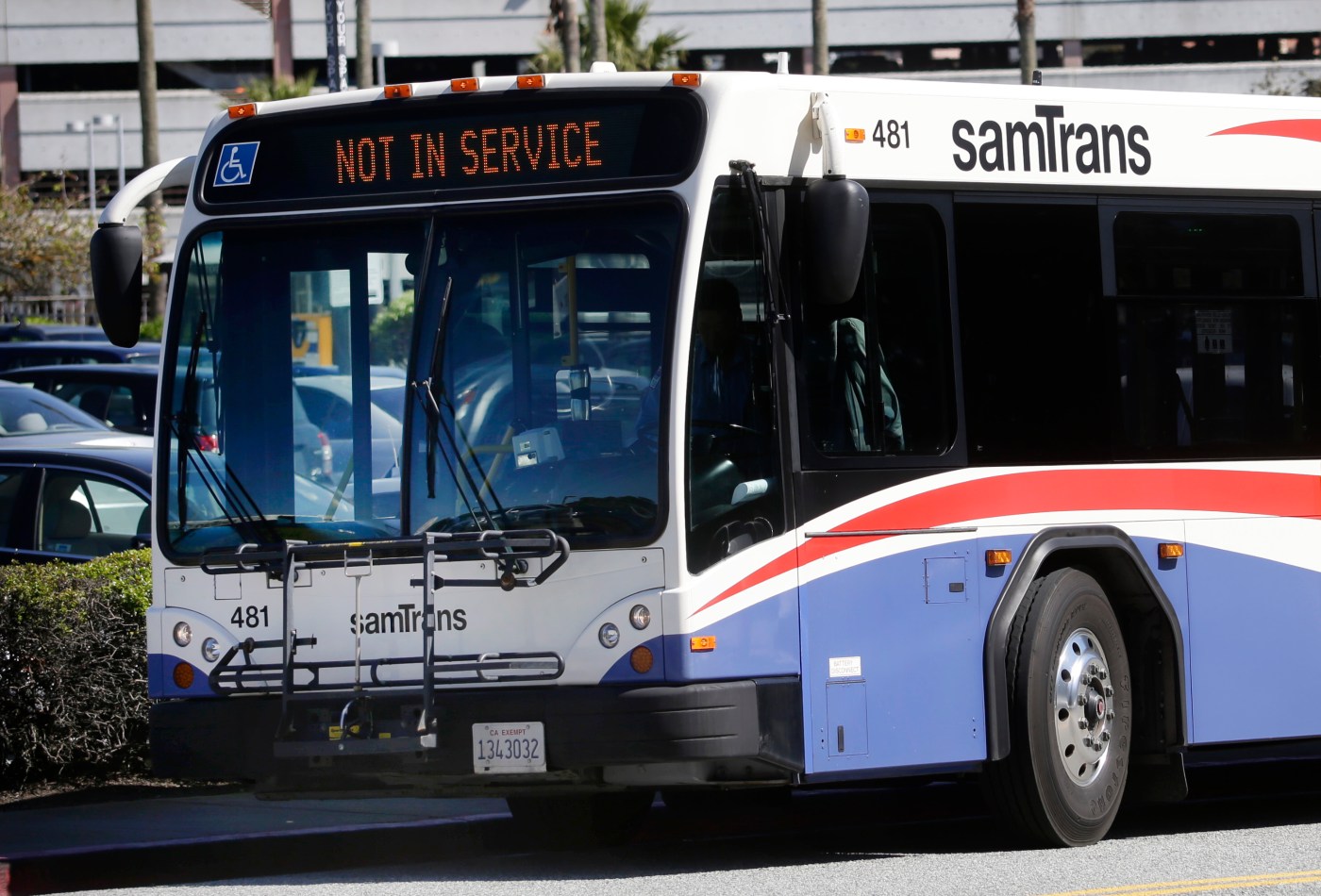More than 60 SamTrans union bus drivers — about 30% — participated in a contract-related sick-out Thursday, prompting the transit agency to rearrange bus schedules to minimize service disruptions to its thousands of daily riders.
A SamTrans spokesperson said the agency was preparing for another sick-out Friday based on the number of bus operators who had already called in sick by late Thursday.
SamTrans spokesperson Randol White said the agency had been preparing for a sick-out that never happened on Aug. 26 and 27, nearly two weeks after members of Amalgamated Transit Union (ATU) Local 1574 overwhelmingly rejected a three-year contract proposal that was supported by union leadership.
White said the proposal offered a 18.3% raise for bus drivers over three years, a 21.9% pay hike for mechanics and utility workers over three years, and an 11.4% pay increase for customer service representatives over three years.
A representative from ATU Local 1574 was not immediately available for comment Thursday.
Related Articles
BART looks to public for input on how to make station roads safer
Letters: True cost | Levi’s Stadium | Gilroy mayor | Drunken driving | Prosecutor vs. felon | Vegetarianism
Caltrain seeks to increase ridership with new $1 youth fare
‘Willie Mays Highway’ bill approved by California Legislature
Me & My Car: East Bay owner bought 1940 Buick convertible for $25
White said SamTrans prioritized school service Thursday without disruption. Routes 292 and 122 were not impacted by the workforce shortage because contractors operate those routes. In addition, Redi-Wheels and RediCoast paratransit services also did not experience disruptions related to the sick-out.
“We know that for many people who depend on SamTrans, there are no alternative transportation options, which is why we take this sick-out very seriously and are doing everything we can to prioritize critical routes and schedule times,’’ White said.
SamTrans buses are critical for many low-income residents in San Mateo County. Based on data from the San Mateo County Affordable Housing Index, 90% of riders are considered low-income and nearly 75 % of riders do not have access to a vehicle.
White said SamTrans remains committed to finding a contract resolution and is prepared to work collaboratively with ATU members, adding that it is now the responsibility of union leaders to submit a revised contract proposal following the membership’s contract rejection vote on Aug. 14.
SamTrans serves an average of roughly 32,000 riders on weekdays.












